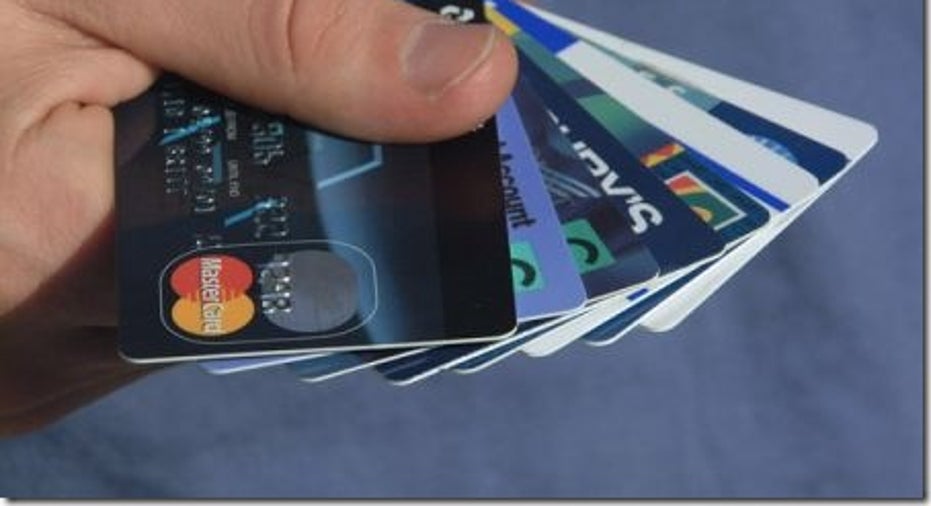Rewards Roulette: Can you pay all Your Bills With Your Credit Card?

When Beverly Harzog's dog needed surgery in August, she paid the $1,086 veterinary bill with her rewards credit card.
"I figured I might as well get a little bit back on it," says Harzog, a credit card expert, author and consumer advocate from Atlanta. A little she did - 1% cash back for $10.86.
Harzog advocates paying for your purchases and recurring bills with your credit cards whenever possible to reap the rewards.
But her credit card advice comes with a huge caveat: Pay your bills with credit cards only if you pay your balance off in full each statement. "If you pay interest on your balance, you don't make money even with the rewards you can earn," she says.
Personal finance columnist Liz Pulliam Weston of Los Angeles couldn't agree more: "Paying your bills with plastic is a good strategy but only if you pay your credit card bills off in full each and every month. Otherwise, you're paying unnecessary interest, and that's just dumb."
Technology makes credit cards easy to use
Thanks to technology, these days you can pretty much buy or pay for anything with credit cards, except perhaps for a house. Most mortgage lenders won't let you make your monthly payments with a credit card because they don't want to pay merchant fees. Most brokerage firms don't let you buy stocks with credit cards either, even online brokers. They want your real money - skin in the game so to speak.
Still, you can charge everything from your monthly electric and mobile phone bills to your groceries and back-to-school shopping. Put it on a credit card and you can pile up some great rewards along the way.
Credit card issuers like when you use their cards to pay your bills because they earn merchant fees, Weston says.
Perks of paying with plastic
In addition to accumulating rewards, here's why you might want to use plastic rather than cash at the register and for recurring bills:
- The more you spend, the greater the perks. Once you hit certain spending thresholds on your rewards credit cards, you may qualify for additional perks or benefits, says Amber Stubbs, managing editor of CardRatings.com. For example, she says, with hotel rewards credit cards, once you spend enough for elite status, you qualify for automatic room upgrades, concierge services, free Internet access and free breakfasts. Stubbs and her husband are hoping to have enough rewards on their American Express Starwood card that when they travel to Europe their hotel stays will be free.
- You have backup. "You get a middleman to help with any disputes that may arise with billers," Weston says. When the purchase or service is on a credit card, if you're unhappy with it for any reason, your credit card company can help you work out your dispute with the merchant.
Pitfalls of paying plastic
And here's why you might want to be cautious about paying all your bills with credit cards:
- Charges can affect your credit. If your monthly charges put you close to your card's credit limit, you could harm your credit score. "Credit card purchases push up the amount you owe compared to your available credit," Weston says. "And that can be bad for credit scores. To have good scores, you need your credit utilization to be below 30%; below 10% is best." If you're applying for a mortgage, a car loan, or insurance, you probably don't want to be spending a lot of money on your credit cards just for the rewards, Harzog agrees.
- Plastic is easy. People tend to be a little more lax about their spending when they put purchases on their credit cards rather than paying with cash or check. "When you're standing at the register, you should ask yourself: 'If I were paying for this in cash, would I still buy it?' If the answer is no, reconsider," Stubbs says.
- You need to be more diligent. You must check your credit card statements with extra care to catch any problems. Most people tend to be more casual about checking their credit card statements than they are about checking their bank statements or balances, Stubbs says. If you're not careful, you could be billed for a service you're no longer getting, Weston says.
- The rewards can change without notice. You may have your eye on a great reward -- a free vacation or a free flight -- and before you have saved enough points the program changes and it's no longer an option. Not much you can do about that, Harzog says. Studies show that about a third of rewards points get tossed in the trash, she notes. If you're paying all your bills on your credit card for that special reward, keep track of your balances and don't let them expire. Harzog keeps track of her rewards with a spreadsheet, just to be safe.
Settlement could change landscape
Thanks to the recent settlement in the government's antitrust lawsuit against Visa and MasterCard, retailers can charge higher prices to customers who pay with their credit cards.
It's not yet clear what impact, if any, the surcharges will have on credit card usage and rewards points.
The settlement requires credit card issuers to temporarily reduce the swipe or interchange fees they charge merchants for processing credit card transactions. Credit card issuers also can negotiate collectively over future interchange fees.
Weston sees two possible scenarios as a result: Credit card issuers make their rewards programs less generous to make up for their loss of interchange fees. Or credit card issuers try to improve their credit card rewards programs to prevent people from switching to other payment methods because of the surcharges for using them. Weston says it's too early to tell which is more likely.
The original article can be found at CardRatings.com:Rewards roulette: can you pay all your bills with your credit card?



















